STRATEGIC PLAN 2024–2029
Kroc Institute for International Peace Studies
Kroc Institute for International Peace Studies STRATEGIC PLAN 2024–2029 1
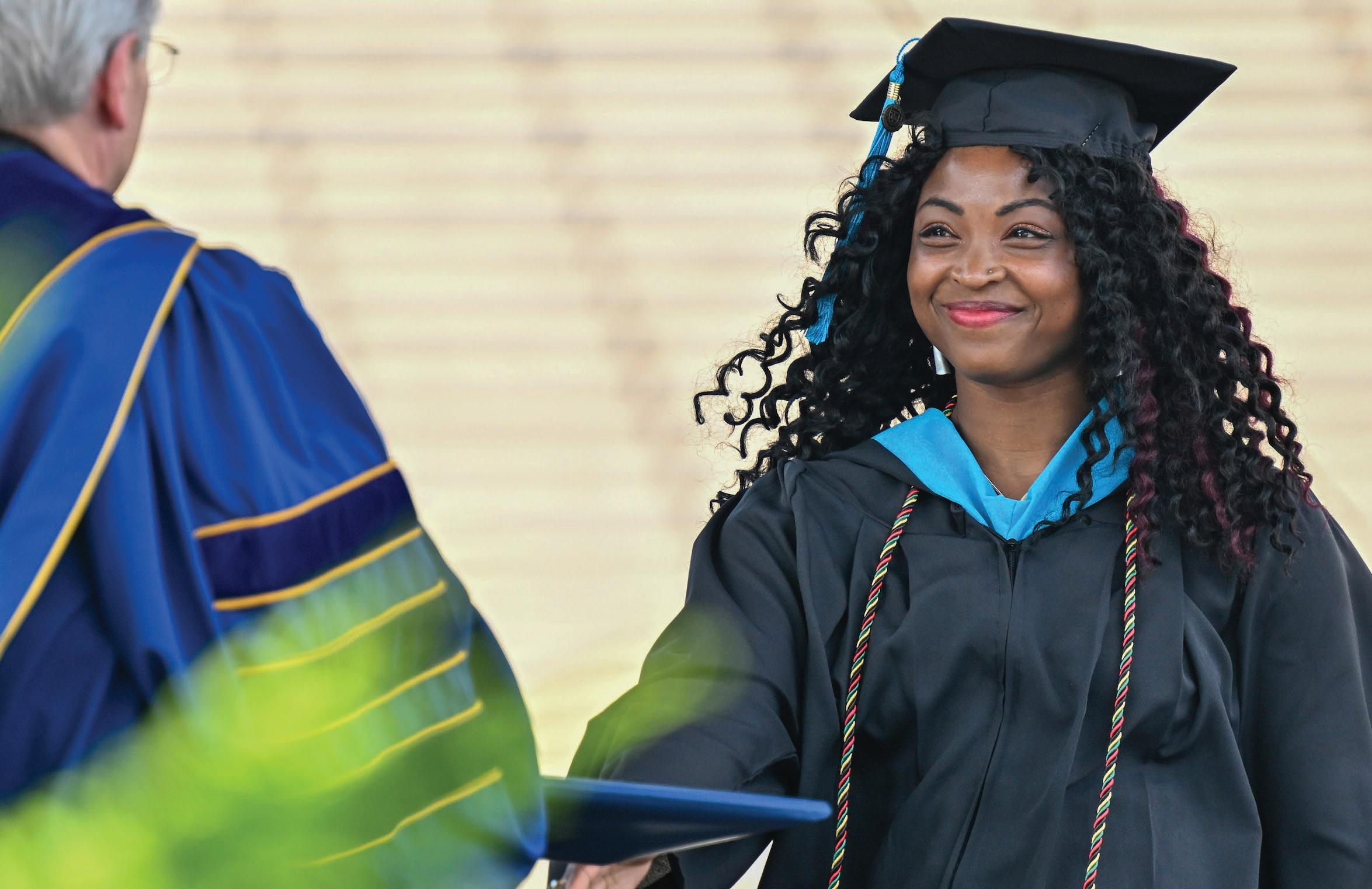
MISSION
The Kroc Institute is a global leader in peace studies, advancing scholarly research and comprehensive education, and cultivating innovation in reflective practice and public engagement. Grounded in the framework of strategic peacebuilding, we serve as a trusted resource for researchers, students, peace practitioners, policymakers, and communities affected by violence.
Bryanna Beamer, MGA ‘22 (international peace studies)
VISION
We will extend our expertise as a world-leading resource able to address complex local and global challenges, committed to exploring decolonial and intersectional approaches to peace and justice. Our interdisciplinary research and education will focus on issues ranging from ending civil war through peace processes, to dismantling structures of inequality, to addressing the violent consequences of environmental crises.
As part of the Keough School of Global Affairs, the Kroc Institute’s new strategic plan (2024-2029) is integral to the four research programs of the Keough School’s Strategic Plan 2030. Consistent with the Keough School’s focus on integral human development, the Kroc Institute is committed to ending cycles of conflict, poverty, violence, and war, and bringing about a just and sustainable peace that recognizes the dignity of all persons. In doing so, the Kroc Institute, one of the University of Notre Dame’s most international units, and its new strategic plan also reflect the University’s Strategic Framework and its initiatives prioritizing democracy and the reduction of poverty around the world.
This mission, enlivened by our diverse and interrelated contributions to peace, resonates with the Catholic intellectual and ethical traditions at the heart of the University of Notre Dame, which seek to put “learning [at the] service of justice.” We envision a normative order in which governments, international institutions, and transnational organizations, including non-governmental organizations (NGOs) and businesses, empower rather than subordinate local communities in their efforts to build a sustainable and just peace. At the heart of our research, teaching, outreach, and practice lies the belief in reciprocal and constructive relationships between and within the local and the global.
Kroc Institute for International Peace Studies STRATEGIC PLAN 2024–2029 1
1
STRATEGIC PLAN 2024–2029
Kroc Institute for International Peace Studies
The Kroc Institute’s last strategic plan (2018–2023) emphasized three goals, all of which will be part of the Institute’s ongoing work over the next five years, through 2029:
1 Enhance cutting-edge research and continue to develop a global leadership role in interdisciplinary peace research.
2 Ensure that Kroc Institute research has a significant impact on peace policy and practice.
3 Develop the Kroc Institute’s educational programs to consolidate its reputation as a global leader in peace education.
(opposite page) Asher Kaufman, John M. Regan, Jr.
Director
and Professor of History and Peace Studies, chats with attendees at a Kroc Institute reception.
Since embarking on the previous strategic plan in fall 2018, the Kroc Institute has launched research foci on intersectionality and justice, climate change and environmental justice, and has hired faculty, offered new courses, and organized public events to focus on and support these burgeoning subject areas. We have optimized our impact on policy and practice through the expansion of the Peace Accords Matrix, the creation of the Mediation Program and the Afghanistan Program for Peace and Development, as well as the ongoing, long-standing efforts of the Catholic Peacebuilding Network.
Simultaneous to this programmatic advancement, individual faculty at the Kroc Institute continue to make pivotal scholarship strides. Focused on themes such as the prevention of mass atrocities, trauma and healing, technology, governance, and religion, our faculty have been influential in policy-related work in various international sites, from Ukraine to Israel/ Palestine to the Democratic Republic of the Congo, as well as in the United States.
Finally, the Kroc Institute’s three educational programs – the undergraduate program, the International Peace Studies concentration of the Master of Global Affairs program, and the Ph.D. program, including the graduate minor in Peace Studies – have flourished, shining brightly throughout the previous strategic plan.
The 2024–2029 strategic plan will sustain initiatives begun in the previous plan, as well as reaffirm our commitment to strategic peacebuilding as the centralizing organizing concept of the Kroc Institute’s work while further developing it through a series of workshops and publications.
2
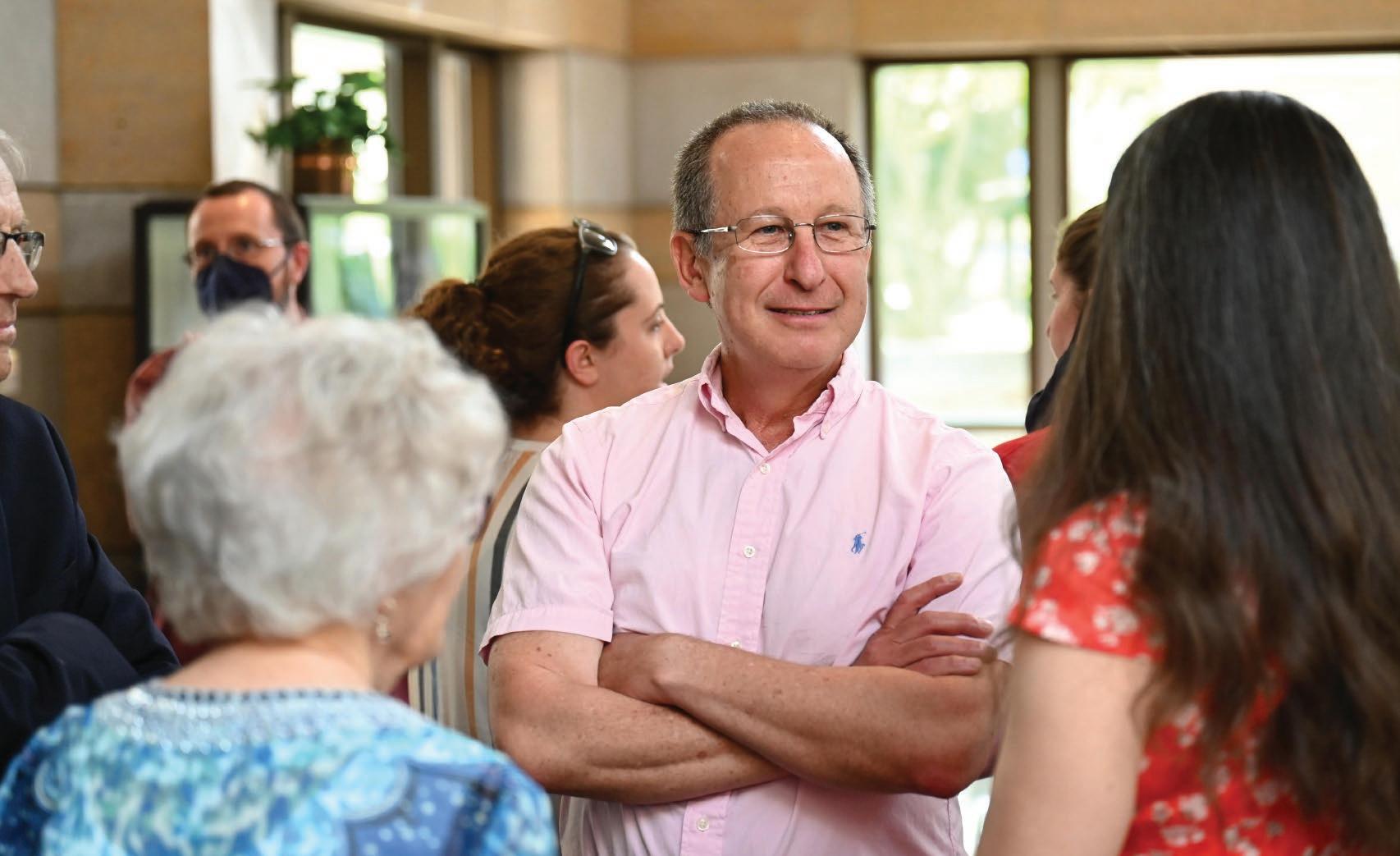
Building on the previous strategic plan, the Kroc Institute will center its focus on the following three areas for 2024-2029, with goals and objectives for each.
1 Research
2 Policy, Practice & Outreach
3 Educational Programs
F Undergraduate
F Master of Global Affairs
F Ph.D.
3
STRATEGIC PLAN 2024–2029
Kroc Institute for International Peace Studies
Research
In addition to the research clusters and policy-related programs central to the Kroc Institute and imperative for its growth over the next five years, the Institute remains strongly supportive of the research and practice of individual faculty members. Faculty bring knowledge and experience that expand the breadth and depth of what the Kroc Institute can offer, including expertise related to peace accord processes; social movements; peacebuilding through development; aid and youth mobilization; restorative justice; trauma and healing; the causes and prevention of mass violence; racial justice; migration; nuclear disarmament; and armed conflict and governance. Additionally, the Kroc Institute has a long, internationally heralded legacy of expertise in religion, ethics, and peacebuilding that we intend to build on in the new strategic plan. Currently, the Kroc Institute consists of 22 core faculty, who collaborate with more than 40 other Keough School faculty working to advance integral human development. In addition, 63 faculty fellows from across Notre Dame colleges and departments support and expand the Institute’s research profile.
GOAL
Reimagine strategic peacebuilding as an evolving transdisciplinary framework that addresses new developments in peace research in response to contemporary challenges.
OBJECTIVES
1 Develop two research and teaching clusters, one focusing on climate change and environmental justice, and one focusing on intersectionality and justice.
2 Organize a set of workshops that deepen and reinforce our commitment to strategic peacebuilding, culminating in the writing, editing and publication of a new, state-of-the-art volume designed to revise and update the Kroc Institute’s field-defining book, Strategies of Peace: Transforming Conflict in a Violent World (Oxford University Press, 2010).
3 Based on the strategic peacebuilding workshops and internal dialogue within the Keough School, devise a faculty hiring plan to help achieve the research, teaching, policy, and practice goals of this strategic plan.
4 Develop a vision and operational plan for research partnerships with relevant institutions in conflict-affected areas, including opportunities for student and faculty exchange, mutual learning, and institutional support.
4
Kroc Institute for International Peace Studies STRATEGIC PLAN 2024–2029
Kroc Institute faculty share their subject matter expertise and scope of research in the classroom.
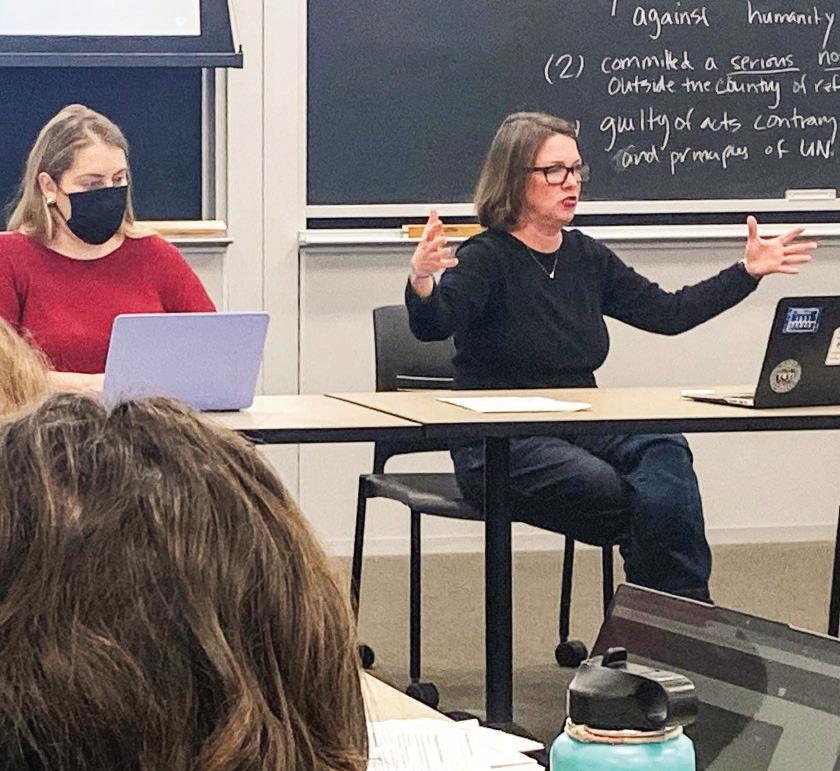
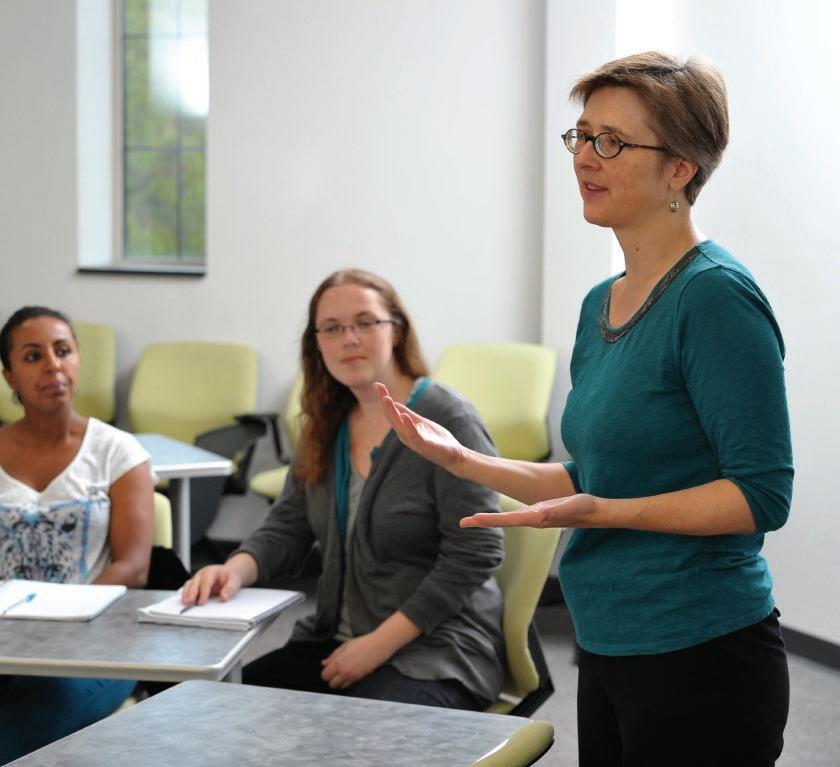

 Erin B. Corcoran, Associate Teaching Professor and Executive Director
Ann Mische, Associate Professor of Sociology and Peace Studies
Ernesto Verdeja, Associate Professor of Peace Studies and Global Politics
Erin B. Corcoran, Associate Teaching Professor and Executive Director
Ann Mische, Associate Professor of Sociology and Peace Studies
Ernesto Verdeja, Associate Professor of Peace Studies and Global Politics
5
Gwendolyn Purifoye, Assistant Professor of Racial Justice and Conflict Transformation

Religion / Ethics / Peacebuilding
The Kroc Institute is respected internationally for its scholarship, policy-relevant research, teaching, and outreach on the ways religious actors, movements, and institutions both legitimate and perpetrate deadly violence and, in other contexts, serve as powerful agents of truth-telling, conflict transformation, restorative justice, and healing.
Since 2010, its Contending Modernities initiative has increasingly set the agenda for academic studies of the roles of religion – in racially and ethnically aggressive nationalisms and populisms, as well as in conditions whereby religions effectively resist such forces.
Over the next five years, Contending Modernities and the Ansari Institute for Global Engagement, also part of the Keough School of Global Affairs, will collaborate and explore ethical and religious dimensions of policy and practice-relevant issues that drive conflict or offer alternatives to deadly violence.
Kroc Institute for International Peace Studies STRATEGIC PLAN 2024–2029 6
Professors leading the Kroc Institute’s religion, ethics, and peacebuilding unit include (top to bottom):
Emmanuel Katongole, Professor of Theology and Peace Studies; Atalia Omer, Professor of Religion, Conflict, and Peace Studies; and Jason A. Springs, Professor of Religion, Ethics, and Peace Studies.
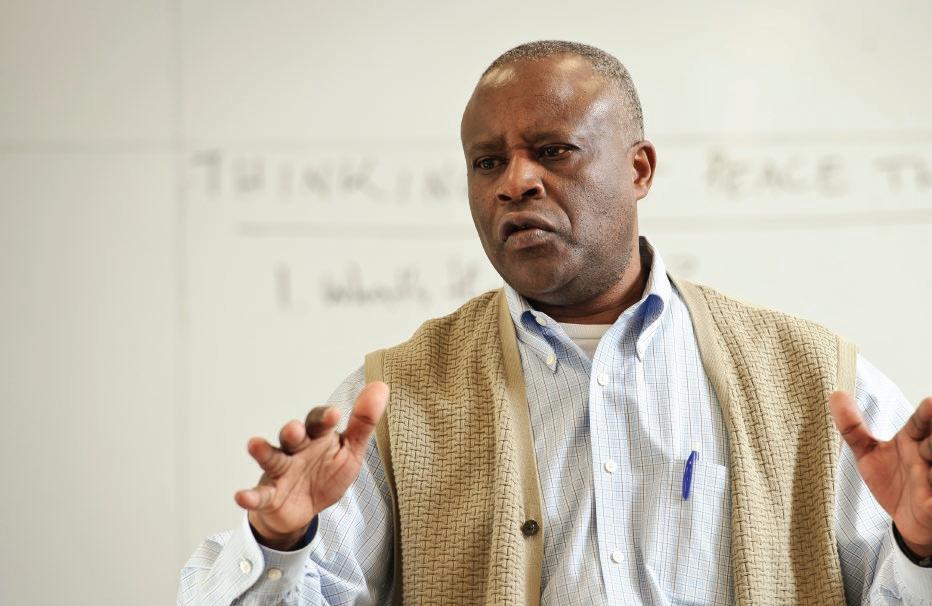

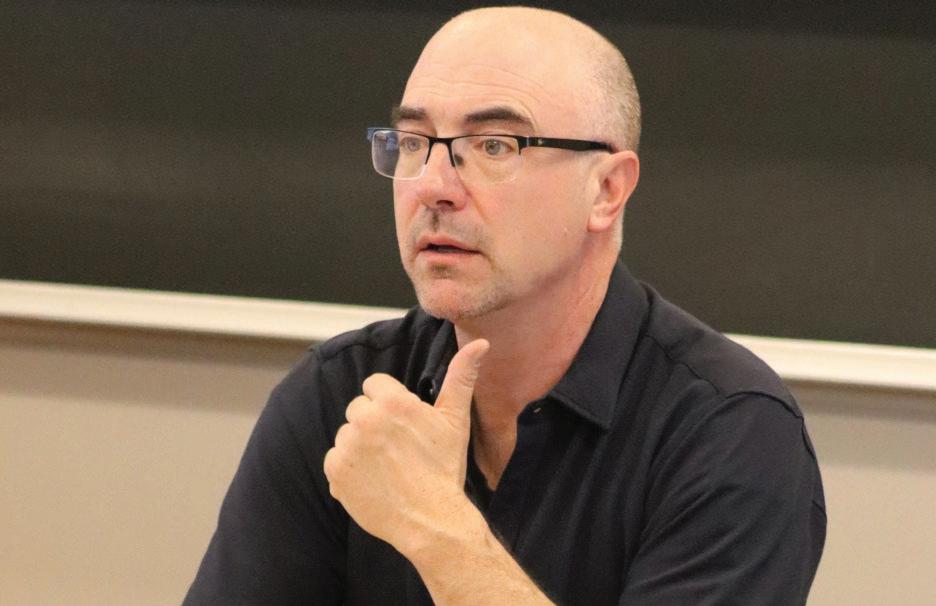
7
Policy, Practice & Outreach
Policy and practice are integral components of the Kroc Institute’s mission and vision. Kroc Institute faculty, staff, and graduate students conduct research that addresses real-life problems to reduce violence and enable constructive change at all levels of society, from local communities to national and international entities. The Institute supports the model of the reflective scholar-practitioner peacebuilder, whose research and practical work in peacebuilding reinforce one another.
Coupled with community outreach at local, national, and international levels, the Kroc Institute’s policy and practice efforts continue to have a significant impact on the fields of peacemaking and peacebuilding around the world. The Institute partners with national and international policymaking bodies like the United Nations, the U.S. administration, governments in conflict zones, and regional and local organizations to undertake research, training, and other activities that meet their needs.
Several programs fall within the Policy, Practice & Outreach category: the Afghanistan Program for Peace and Development, Catholic Peacebuilding Network, Mediation, Peace Accords Matrix, and the PeaceTech and Polarization Lab.
GOAL
Translate and tailor scholarship into accessible resources that engage identified external audiences spanning practice, policy, educational institutions, and the community at large.
OBJECTIVES
1 Position and prepare Kroc Institute faculty, staff, and graduate students to work closely with the Keough School’s Global Policy Initiative and its Washington, D.C. office, directly engaging with regional, national, and international policy, practice and educational partners, and adapting scholarship for pertinence and accessibility to policy audiences.
2 Engage in a more intentional and strategic way with our Faculty Fellows, leading to expanded collaborations and partnerships with other Notre Dame programs, departments, and schools.
3 Amplify the Kroc Institute’s global network, building on existing relationships with Kroc Institute alumni and former visiting fellows, and engaging these constituent groups with the Institute’s policy and outreach work.
8

Josefina Echavarría Alvarez, Professor of the Practice and Director of the Peace Accords Matrix (PAM), addresses the United Nations Security Council in October 2023, while Kate Chester, Communications Program Director, reviews Josefina’s remarks.
4 Redesign the Summer Institute to broaden outreach and engagement with practitioners, academics, those working in the policy arena, as well as with the University’s Notre Dame Global Network of sites around the world.
5 Evaluate and expand community outreach and engagement with civic organizations, community service organizations, the City of South Bend, and local business and industry, tailoring our scholarship to meet the needs and interests of these organizations.
Kroc Institute for International Peace Studies STRATEGIC PLAN 2024–2029 9
Afghanistan Program for Peace and Development
Established in 2021 and embedded within the Kroc Institute’s Mediation Program, the Afghanistan Program for Peace and Development (AfPAD) collaborates with Afghans and other interested individuals, organizations, and governments to build lasting peace in Afghanistan. In just three years, AfPAD has facilitated a dialogue and visioning series for Afghan policy experts, provided policy briefings to officials from around the world and international organizations, organized public policy forums, conducted research, and supported publication of policy papers.
Building on this success, AfPAD aims to deliver on several goals over varying periods of time:
> Foster conditions for an inclusive political process in Afghanistan, to assist with negotiating humanitarian access (short-term).
> Nurture sustainable economic development (medium-term).
> Create proposals for constitution-making negotiations (medium-term).
> Contribute to building lasting peace in the country (long-term).
Catholic Peacebuilding Network
The Catholic Peacebuilding Network (CPN) is a unique arrangement of 22 partner institutions from around the world that engage the practice of linking Catholic theology and ethics with Catholic peacebuilding. CPN will augment its 20-year history of work in Colombia, the Philippines, and central/east Africa through a set of thematic initiatives to:
> Map, analyze, and strengthen Catholic women’s leadership in peacebuilding.
> Develop case studies and pastoral planning tools following the groundbreaking book, Catholic Peacebuilding and Mining (2022).
> Continue to advise the Holy See and revitalize Catholic engagement on nuclear disarmament after an historic Vatican conference (2017) and Forbidden (2023), the first book of its kind since the Cold War.
> Provide strategic support to publish a book on the Church and peace processes.
(opposite page, top to bottom) Gerard (Jerry) F. Powers, Director, Catholic Peacebuilding Studies and Coordinator, Catholic Peacebuilding Network, teaches courses in Rome in the summer of 2023.
Caesar A. Montevecchio, Assistant Director, Catholic Peacebuilding Network (far right), participates in a March 2024 conference held in Accra, Ghana. The event was organized by the Symposium of the Episcopal Conference of Africa and Madagascar, to deliberate the critical nexus between natural resource exploitation and conflicts within the African continent.
10
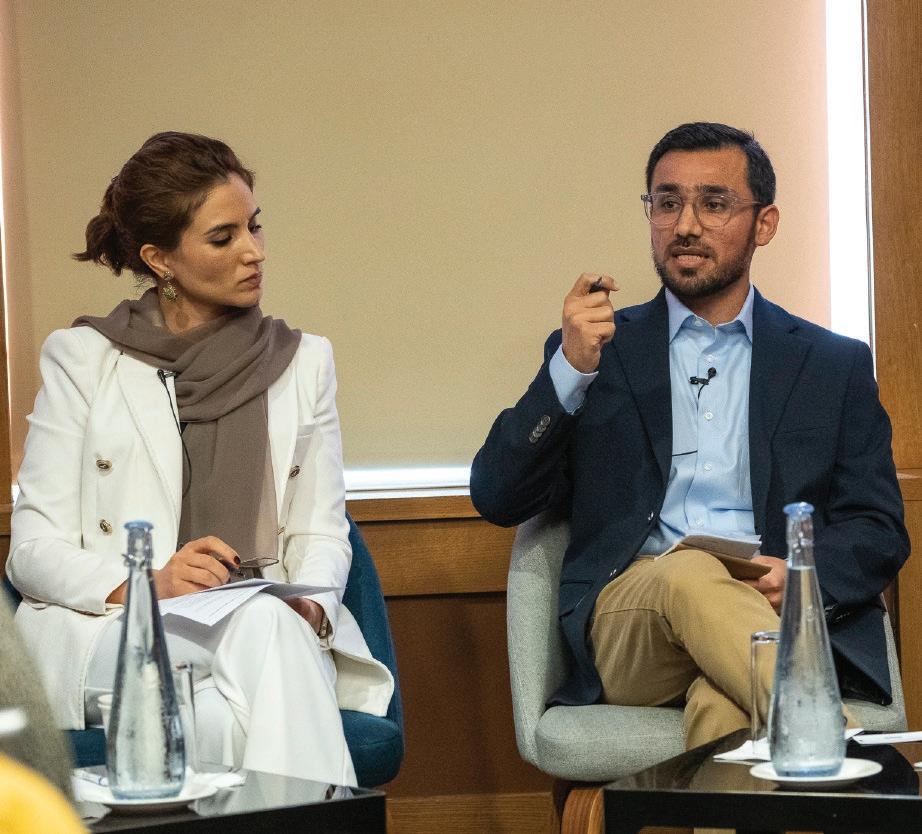
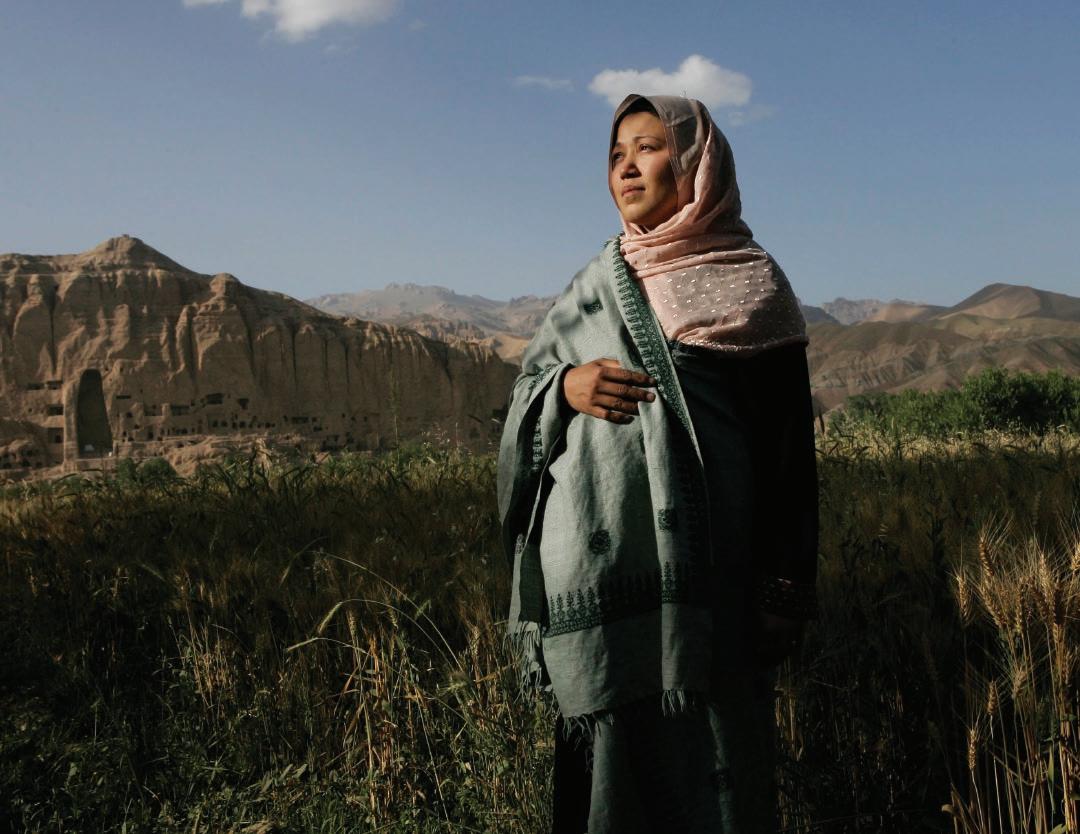

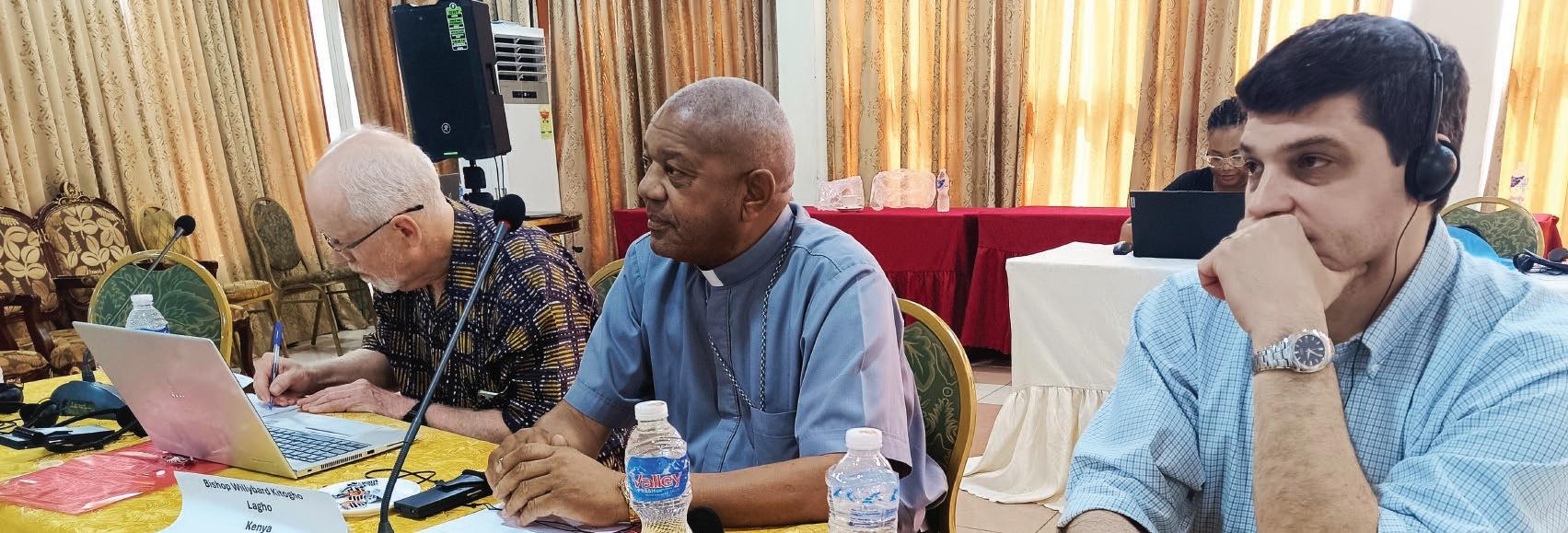 (left to right) Aref Dostyar, Advisor and Program Leader, Afghanistan Program for Peace and Development, speaks at a fall 2023 panel related to Afghanistan; a local woman in the Afghanistan countryside.
(left to right) Aref Dostyar, Advisor and Program Leader, Afghanistan Program for Peace and Development, speaks at a fall 2023 panel related to Afghanistan; a local woman in the Afghanistan countryside.

Mediation
The Mediation Program specializes in international and community mediation, preventive diplomacy, negotiations, and national dialogue. To advance its goal of becoming a global center of excellence, it will:
> Undertake academic mediation research with partners like the Peace Research Institute Oslo.
> Provide students with state-of-the-art mediation courses, including the annual week-long Ph.D. course on international mediation in Oslo.
> Offer skills training to select groups of mediators and negotiators, building on courses the Program has designed for United Nations and European Union officials, as well as City officials and community activists in South Bend.
> Contribute to international policy and practice on mediation by expanding current global partnerships and developing new international alliances.
12
(above) Laurie Nathan, Professor of the Practice of Mediation and Mediation Program Director. (opposite page) Ángela María Ramírez Rincón, Executive Director of the Barometer Initiative.
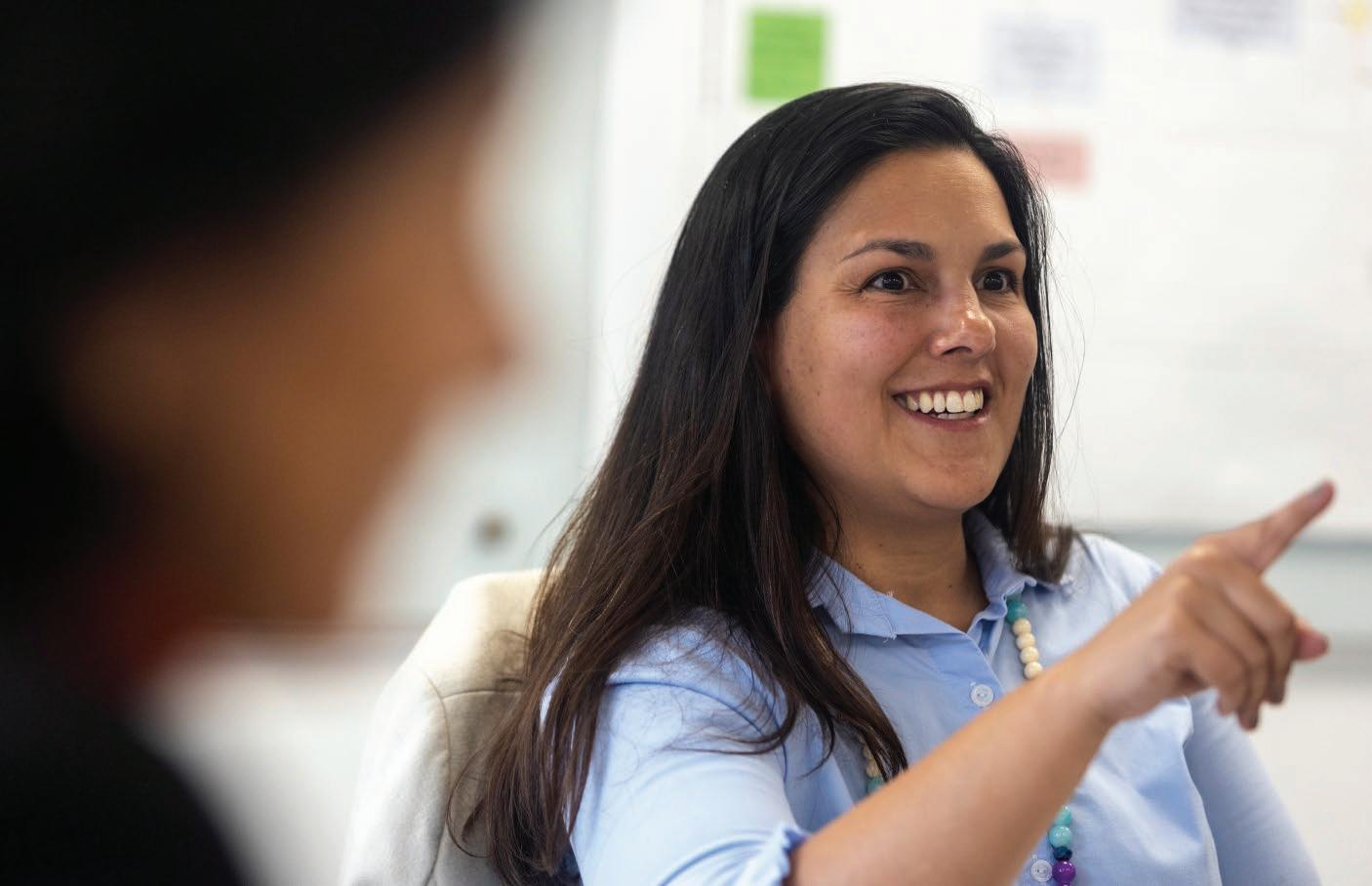
Peace Accords Matrix
The Peace Accords Matrix (PAM) is the world’s leading academic center for monitoring implementation progress of global peace agreements. PAM advances knowledge about peace accords through its unique dataset on implementation of peace agreements, and also engages with researchers, practitioners, and policymakers seeking advice on peace accord design and implementation.
Central to PAM is its Barometer Initiative in Colombia, entrusted with a mandate to monitor implementation of the country’s 2016 Peace Accord. Its success in Colombia increased demand for support to other peace accord contexts, with a Mindanao Field Unit recently established in the Philippines to monitor a portion of the 2014 Bangsamoro Accord.
Expanding on this success, PAM intends to:
> Pioneer innovative research on peace accords and their implementation.
> Mentor a new generation of students, researchers, and scholar-practitioners.
> Engage in peace processes through new field units.
> Strengthen the Barometer Initiative.
13 Kroc Institute for International Peace Studies STRATEGIC PLAN 2024–2029

PeaceTech and Polarization Lab
Founded in 2022, the PeaceTech and Polarization (PTAP) Lab conducts research to identify and explore technologies that support social cohesion, with hands-on help from Notre Dame students. The Lab liaises with a variety of global stakeholders at tech companies, the United Nations, peacebuilding NGOs, and other universities. PTAP has organized a major digital peacebuilding conference in San Francisco, launched a new Council on Technology and Social Cohesion, and secured several grants to advance and publish major research papers.
PTAP aims to establish Notre Dame as a center of excellence for using technology to support public deliberation, democratic processes, and inclusive peacebuilding. To accomplish this, the Lab will formalize partnerships across the University with its Computer Science and Engineering Department, the Notre Dame-IBM Technology Ethics Lab, and The Lucy Family Institute for Data and Society.
14
Kroc Institute for International Peace Studies STRATEGIC PLAN 2024–2029
(above) Lisa Schirch, Richard G. Starmann, Sr. Professor of the Practice of Peace Studies (fourth from left) leads a group of students and visiting research fellows to Nairobi for the 2023 Build Peace conference, some of whose participation was funded in part by the Kroc Institute and the PeaceTech and Polarization Lab.


One example of the Kroc Institute’s prioritization of outreach is its annual Distinguished Alumni Award honoring a Notre Dame graduate in peace studies whose career and life exemplifies the ideas of international peacebuilding. Recent honorees include (top – wearing lavender) Myla Leguro (M.A. ‘10 and 2023 Distinguished Alumni Award winner), Technical Advisor for Social Cohesion and Church Engagement at Catholic Relief Services in the Philippines, and founder of the Mindanao Peacebuilding Institute; (left) Valerie Hickey (M.A. ‘00 and 2022 Distinguished Alumni Award winner), Global Director for Environment, Natural Resources and the Blue Economy at the World Bank; (right) Jorge Vargas Cullell (M.A. ‘94 and 2024 Distinguished Alumni Award winner), Director of Estado de la Nación, a Costa Rica-based center of thought that conducts research on sustainable development; and (bottom) Anne Hayner, Associate Director for Alumni Relations at the Kroc Institute, visits with attendees at a Distinguished Alumni Award reception.


15
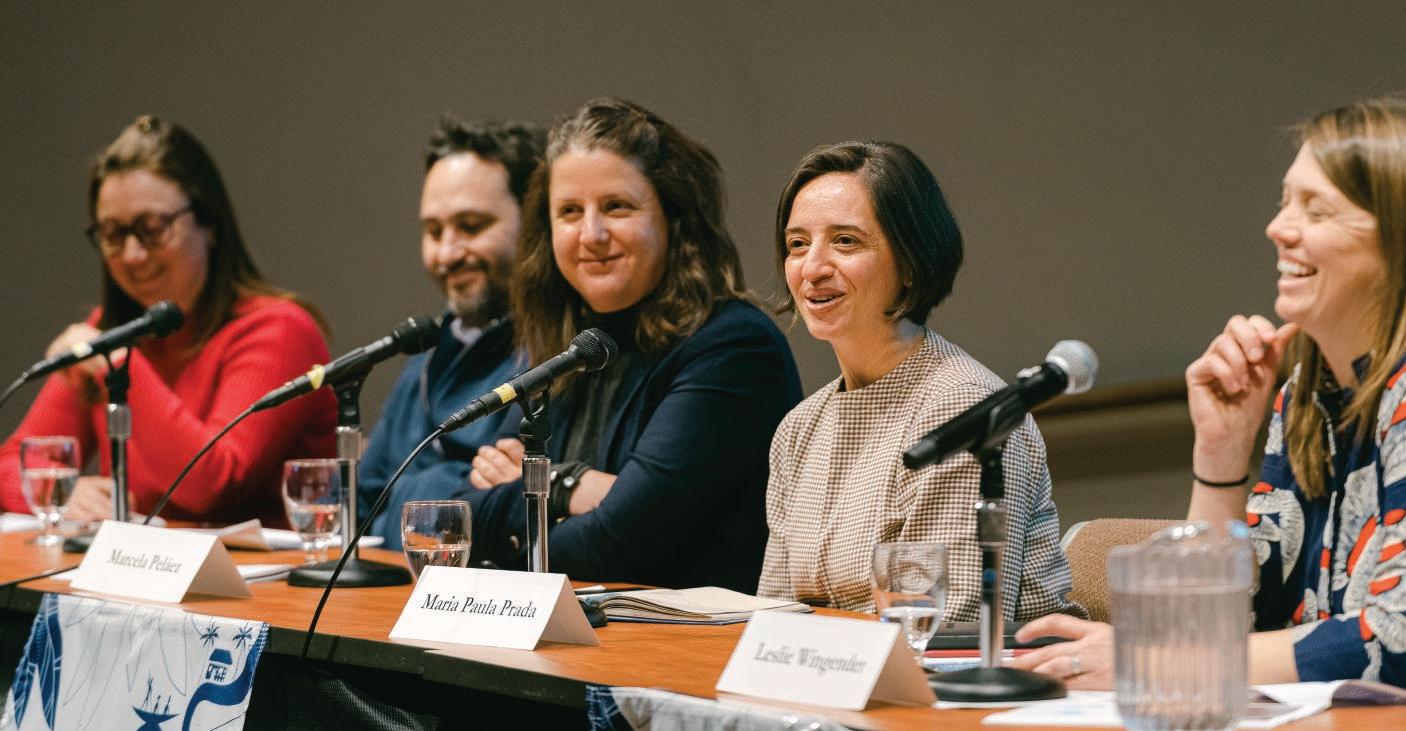
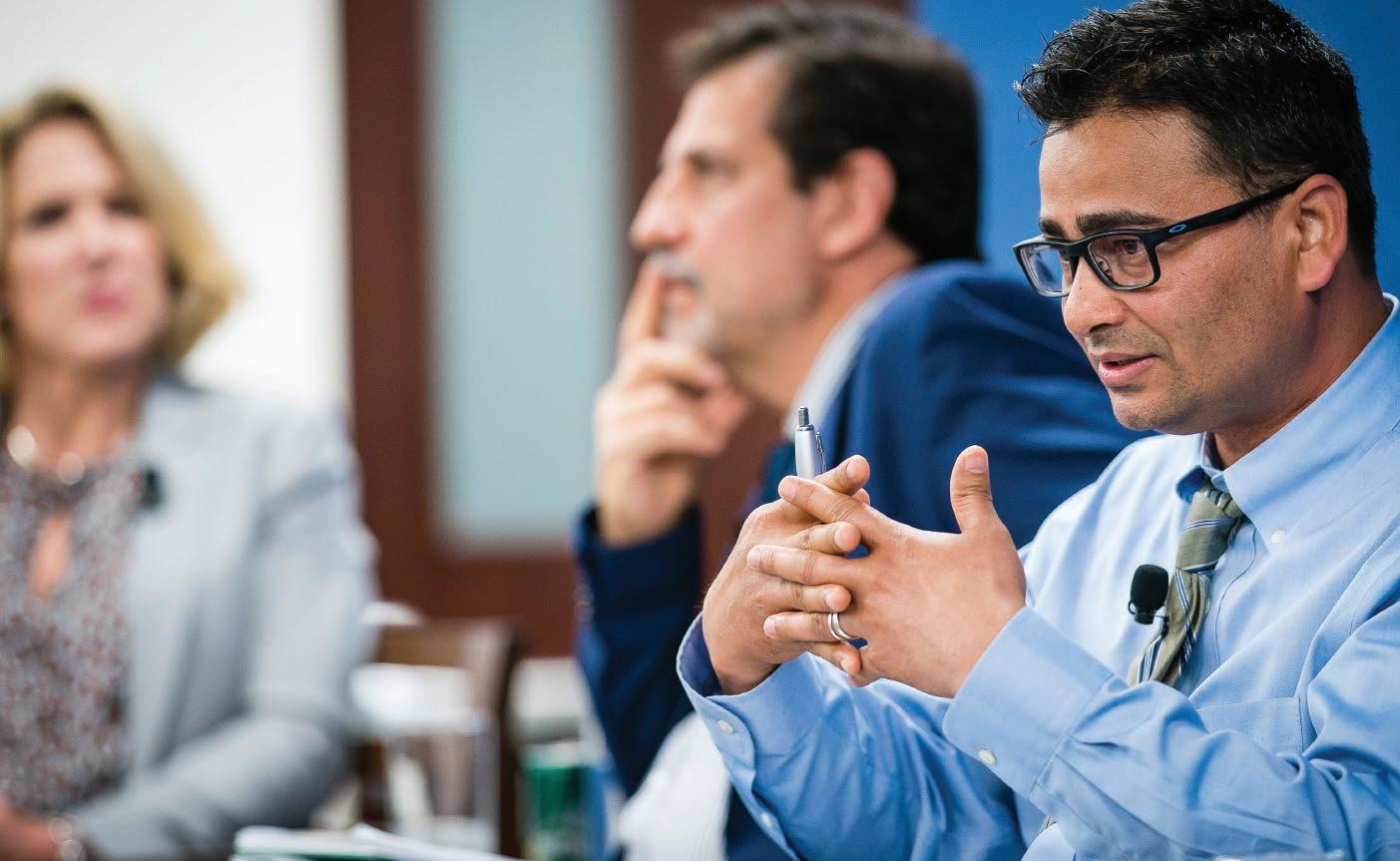
Other examples of outreach at the Kroc Institute include its visiting research fellows program and engagement with influencers and policymakers.
(top) Maria Paula Prada Ramírez (second from right), a Kroc Institute Visiting Research Fellow, leads a panel discussion as part of The Legacy Project launch at Notre Dame in January 2024. Affiliated with the Peace Accords Matrix, The Legacy Project is a collection of more than 200,000 archived audiovisual files and digitized documents about the Colombian civil war and peace process, collected under the mandate of the Colombian Truth Commission and available for study to shape peacemaking and peacebuilding efforts around the world.
(bottom) Madhav Joshi, Research Professor and Associate Director of the Peace Accords Matrix, presents at a policy forum in the Washington, D.C. office of the Keough School of Global Affairs.
Kroc Institute for International Peace Studies STRATEGIC PLAN 2024–2029 16
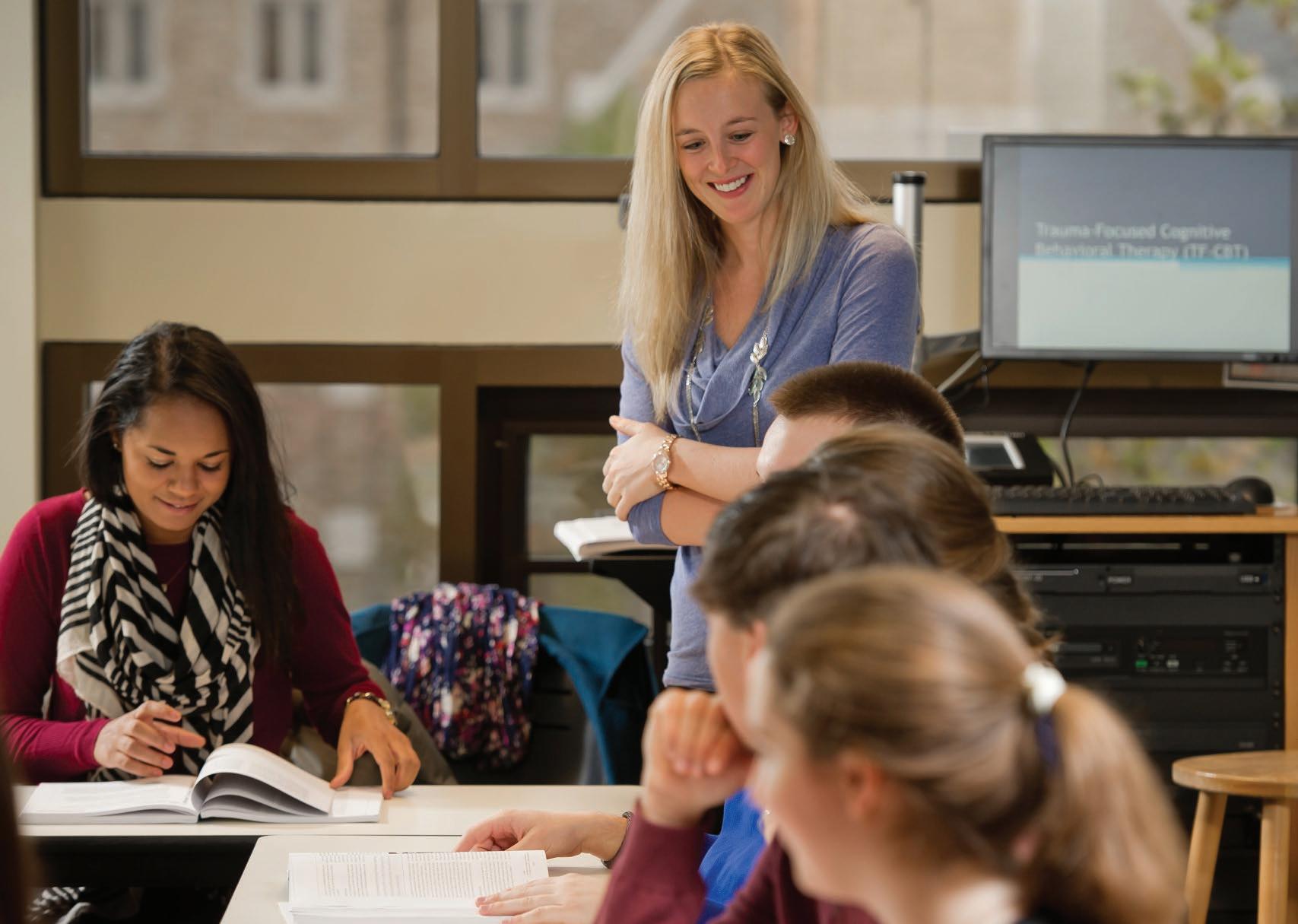
Educational Programs
Founded at the University of Notre Dame in 1986, the Kroc Institute offers degrees, concentrations, supplementary majors, and minors in peace studies to Ph.D., master's, and undergraduate students. The evolution of its educational programs reflects the vision of Rev. Theodore M. Hesburgh, C.S.C. and President Emeritus of Notre Dame, and philanthropist Joan B. Kroc. Together, they sought to establish a peace institute that would educate and equip peacebuilders with effective tools to confront injustice and create transformative, sustainable peace at local, national and international levels. Since its foundation, the Kroc Institute has produced a global alumni network of more than 1,900 graduates who, through their work, manifest the vision of the Institute’s founders.
Laura Miller-Graff, Professor of Psychology and Peace Studies and Director of Undergraduate Studies.
Kroc Institute for International Peace Studies STRATEGIC PLAN 2024–2029 17
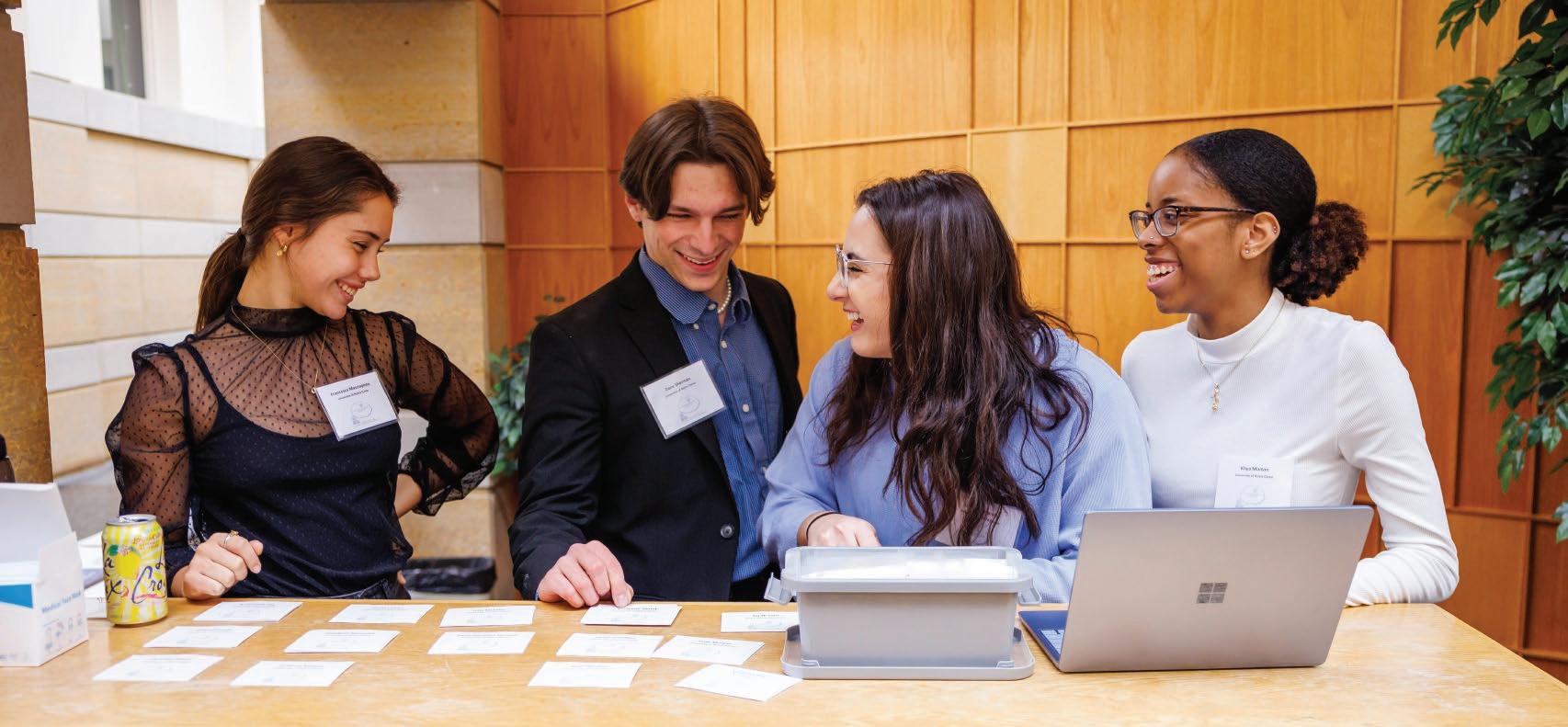
Undergraduate peace studies students organize and facilitate the Notre Dame Student Peace Conference, which takes place annually in April.
“I chose to study peace because I wanted to grow a pragmatic and empathetic worldview, focusing on authentic voices and alternative understandings.”
– Francesca Masciopinto, BA ‘24, political science major, with a peace studies supplementary major and a digital marketing minor
Undergraduate Program Goal
Become the campus leader in educational programming that gives Notre Dame undergraduates a peace studies lens and language to understand, navigate, and transform complex systems of violence, oppression, and injustice.
OBJECTIVES
1 Develop and expand opportunities for peacebuilding praxis and increase the number of students engaged in those co-curricular opportunities.
2 Make peace studies a foundational touch-point of undergraduate education in the Keough School and across the university through expanded curricular programming and partnerships.
3 Integrate undergraduate students more fully into the academic life of the Institute through more structured opportunities for student engagement in events and research.
Kroc Institute for International Peace Studies STRATEGIC PLAN 2024–2029 18

Master of Global Affairs Program Goal
Build on the strength and reputation of the international peace studies concentration to enliven its teaching methodologies through both peer-to-peer and community-based learning.
OBJECTIVES
1 Develop course offerings:
a For community-based learning in partnership with local organizations.
b For peace research methodologies.
2 Expand the depth and breadth of experiential learning opportunities as part of our students’ six-month internship experiences within the program.
3 Strengthen the alignment of the internship opportunities for students with the Kroc Institute’s approach of strategic peacebuilding.
4 Create more opportunities for students to learn from each other and improve their intercultural skills.
5 Provide opportunities for students to develop skills to produce policy-relevant resources.
6 Sustain recruitment efforts to ensure diversity of students is in line with the vision of Father Hesburgh and Joan B. Kroc.
“The International Peace Studies concentration of the Master of Global Affairs program has been a theoretically rich and academically rigorous environment that consistently challenges my assumptions, encourages deep reflection, and expands what I think is possible when it comes to working toward peace. In addition to providing me with the space to develop my identity and skills as a peace studies scholar, this program and the diverse students it attracts continue to transform my work as a peace practitioner.”
– Meg Reamy, MGA ‘25 (international peace studies)
19
MGA (international peace studies) Class of 2024.
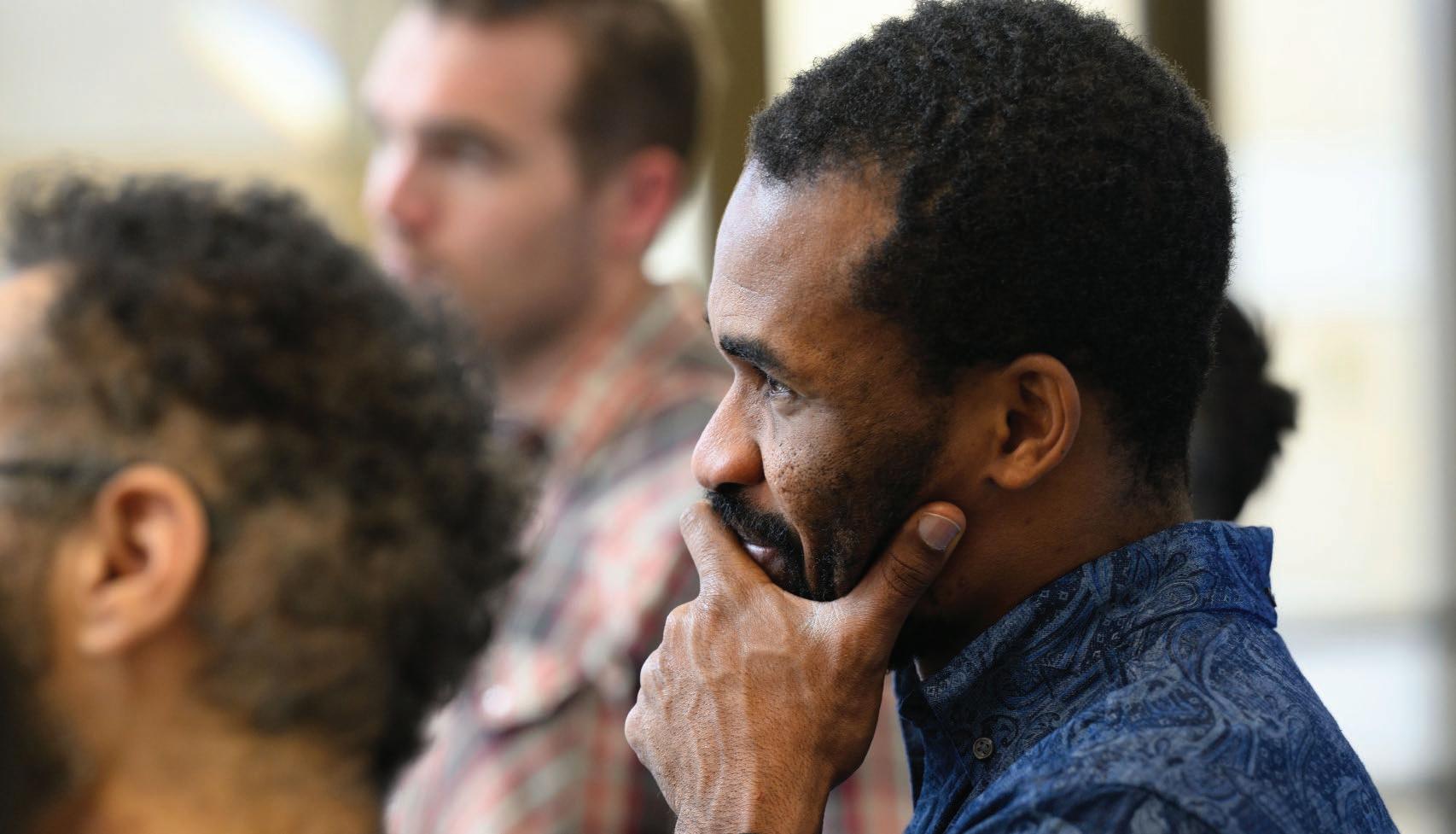
Ph.D. Program Goal
Expand the doctoral program and enhance the integration of students and their research into the intellectual life, scholarly community, and success of the Institute.
OBJECTIVES
1 Expand the doctoral program via a stand-alone international peace studies Ph.D. program.
2 Expand research dissemination from Kroc Institute doctoral students, giving it similar spaces as faculty research.
3 Expand training beyond strictly an academic position focus, to include translating scholarship into accessible resources for education, advocacy, and policymaking.
4 Integrate decolonial research ethics into curriculum and training.
5 Expand the variety of collaborative research opportunities.
6 Expand student opportunities beyond the Kroc Institute.
“My experiences as a Kroc Institute graduate student have been invaluable to my success thus far. The unique set of skills and qualifications from the joint program made me a standout candidate for major fellowships in my partner discipline.” – Sean Raming (Ph.D. candidate, peace studies and history)
Kroc Institute for International Peace Studies STRATEGIC PLAN 2024–2029
20
Joachim Chukwuebuka Ozonze (Ph.D. candidate, peace studies and theology), listens intently.
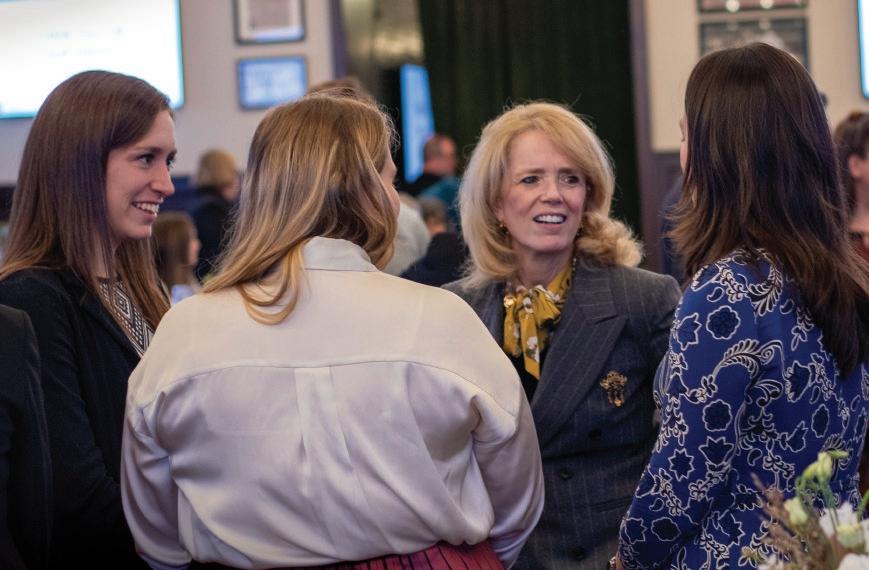

Kroc Institute Advisory Board
The Kroc Institute Advisory Board provides advice and guidance to the Institute’s director and executive staff and supports the development of Kroc Institute resources. Led by its chair, the Advisory Board continues to perform the role of ensuring the Kroc Institute’s integrity and reputation as a global leader in peace studies as envisioned by Rev. Theodore M. Hesburgh, C.S.C., and philanthropist Joan B. Kroc.
GOAL
Expand the Advisory Board to reflect the diversity and global profile of the Kroc Institute’s peacebuilding efforts around the world.
OBJECTIVES
1 Support the Kroc Institute through generous personal philanthropy to advance the goals and objectives set in this strategic plan.
2 Identify and cultivate new philanthropic sources to advance the goals and objectives set in this strategic plan.
3 Recruit peace studies leaders from the Global South to enhance the Advisory Board’s constituency and reflect the international profile of the Institute.
4 Recruit a local community leader from South Bend with racial justice expertise to serve on the Advisory Board.
5 Contribute expertise and forge connections with new audiences to support the implementation of this strategic plan.
21 ADDITIONAL PRIORITIES
Kroc Institute for International Peace Studies STRATEGIC PLAN 2024–2029
(left) Board Chair Paddy Mullen (B.A. ‘80) visits with students at the annual fall Advisory Board dinner held on campus. (right) Paddy Mullen and past-Board Chair J. Patrick Danahy (B.A. ‘66).
Communications Program
The primary function of the Kroc Institute’s Communications program is to heighten awareness of the breadth and depth of the Institute’s work in international peace studies and its in-house expertise. This is achieved by way of promotion, public relations, media relations, community outreach, and events management.
GOAL
Develop and nurture new avenues to promote and expand awareness of the Kroc Institute’s advances in the areas of (1) peace research, (2) accessible scholarship and peace policy practice, and (3) peace education.
OBJECTIVES
1 Strategically align and coordinate communications and publicity efforts with those of the Keough School and the University for maximum benefit and results.
2 Develop and deepen communications resources in partnership with the Keough School, leveraging publicity channels that garner more awareness for the Kroc Institute’s programs.
3 Pursue new community outreach avenues – locally, nationally, internationally – that generate interest in collaboration opportunities for the Kroc Institute with organizations, educational institutions, business and industry, alumni, visiting fellows, and more.
4 Collaborate with faculty and students on communications strategies to engage targeted audiences and increase awareness about policy relevant research.
5 Update and enhance the Kroc Institute website.
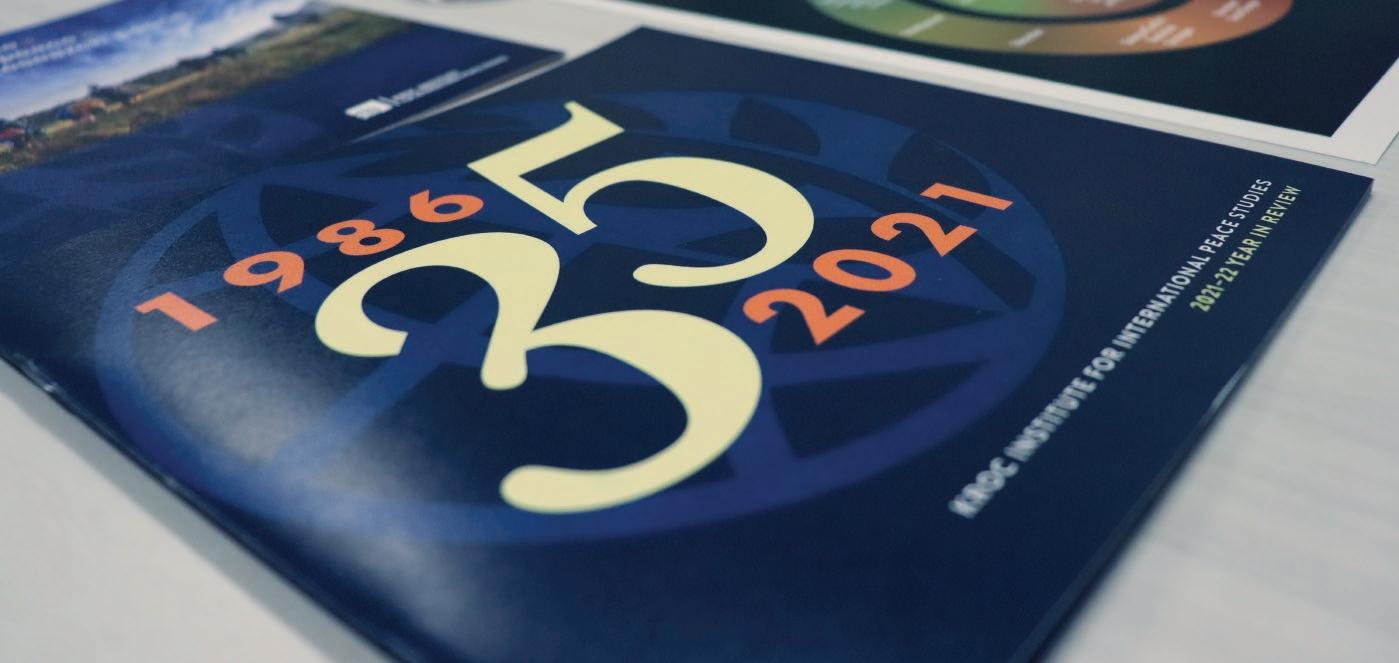
22



23
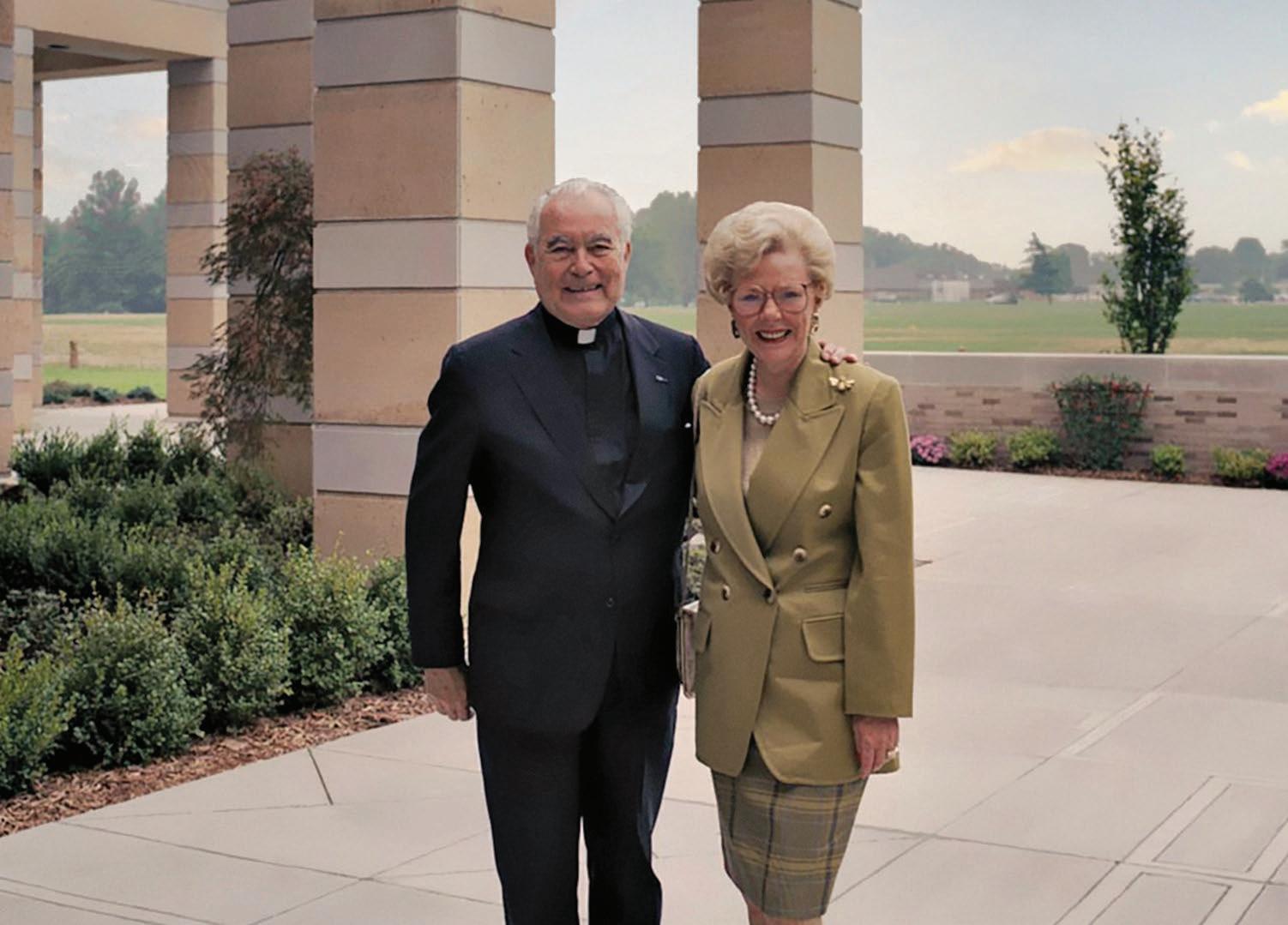
Kroc Institute for International Peace Studies STRATEGIC PLAN 2024–2029 24
Rev. Theodore M. Hesburgh, C.S.C., and philanthropist Joan B. Kroc, 1991. The Kroc Institute for International Peace Studies was inspired by their vision of a world free from the threat of nuclear catastrophe.
INVESTING IN PEACE — OUR NEEDS
New Resource Requirements for the 2024–2029 Strategic Plan
The Peace Accords Matrix (PAM) is a unique source of comparable data on peace agreements that enables scholars and practitioners to compare 51 different themes in comprehensive peace agreements signed since 1989. The 2016 Colombia Peace Accord gives the Kroc Institute primary responsibility for technical verification and monitoring of implementation of the accord through PAM’s Barometer Initiative. PAM’s success in Colombia has increased demand for support to other peace accord contexts around the world – leading it to the Philippines, where PAM Mindanao (PAM-M), the latest project, aims to build on PAM’s longstanding presence in the region. To meet this global need, the Kroc Institute is looking to sustain and expand PAM.
PAM Operations Endowment: $ 25 million
PAM Directorship Endowment: $ 5 million
A new doctoral program in International Peace Studies will begin to enroll students in fall 2025 and joins six long-standing joint doctoral degree programs, administered by the Kroc Institute, that educate and train students in peace research and their choice of discipline — anthropology, history, political science, psychology, sociology, or theology.
The new Ph.D. in International Peace Studies program is targeted toward highly accomplished professionals with backgrounds in fields such as conflict resolution, education, development, or human rights who wish to bring professional and interdisciplinary knowledge into their doctoral research and immerse themselves solely in the field of peace studies. Created in response to increasing recognition of the role of peace studies expertise in addressing global challenges, the new program will pair the scholarship of peace studies with the interdisciplinary approaches tailored to policy and practice. It will train students in the model of the scholar-practitioner, preparing them to disseminate their research findings both among the communities they have researched and also in policy forums, with capacity to initiate positive change.
$ 1,500,000 Endowment:
Funds one student per year (includes stipend, healthcare, research funds, and other program expenses)
$ 7,500,000 Endowment:
Funds one student over five years of study (includes stipend, healthcare, research funds, and other program expenses)
25
 (above) Professor Atalia Omer conducts research in the Tana River region near Garissa, Kenya.
Photo: Evans Oyango Kengere. (opposite) The Prayer Room in Jenkins Nanovic Halls, home to the Kroc Institute for International Peace Studies.
(above) Professor Atalia Omer conducts research in the Tana River region near Garissa, Kenya.
Photo: Evans Oyango Kengere. (opposite) The Prayer Room in Jenkins Nanovic Halls, home to the Kroc Institute for International Peace Studies.

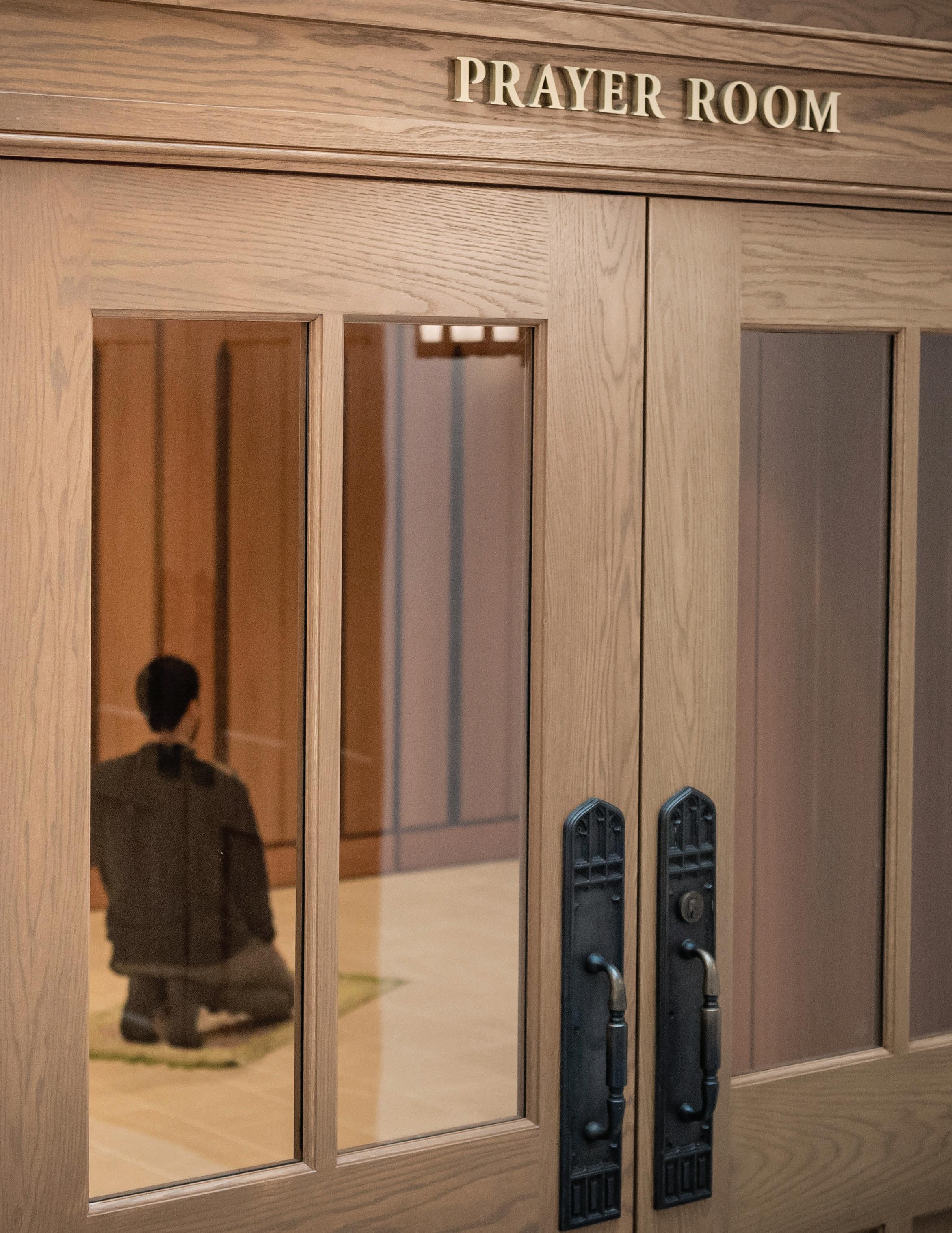


Kroc Institute for International Peace Studies STRATEGIC PLAN 2024–2029 30 kroc.edu






 Erin B. Corcoran, Associate Teaching Professor and Executive Director
Ann Mische, Associate Professor of Sociology and Peace Studies
Ernesto Verdeja, Associate Professor of Peace Studies and Global Politics
Erin B. Corcoran, Associate Teaching Professor and Executive Director
Ann Mische, Associate Professor of Sociology and Peace Studies
Ernesto Verdeja, Associate Professor of Peace Studies and Global Politics








 (left to right) Aref Dostyar, Advisor and Program Leader, Afghanistan Program for Peace and Development, speaks at a fall 2023 panel related to Afghanistan; a local woman in the Afghanistan countryside.
(left to right) Aref Dostyar, Advisor and Program Leader, Afghanistan Program for Peace and Development, speaks at a fall 2023 panel related to Afghanistan; a local woman in the Afghanistan countryside.




















 (above) Professor Atalia Omer conducts research in the Tana River region near Garissa, Kenya.
Photo: Evans Oyango Kengere. (opposite) The Prayer Room in Jenkins Nanovic Halls, home to the Kroc Institute for International Peace Studies.
(above) Professor Atalia Omer conducts research in the Tana River region near Garissa, Kenya.
Photo: Evans Oyango Kengere. (opposite) The Prayer Room in Jenkins Nanovic Halls, home to the Kroc Institute for International Peace Studies.



